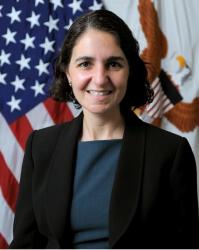

10:30 am EST - 12:00 pm EST
Past Event
Great power competition has reemerged as a central dynamic in international politics. American, Chinese, and Russian interests in overseas military bases are an important element of this competition and therefore warrant close attention as indicators of strategic capabilities and intentions. In particular, the efforts of great powers to establish overseas bases reveal the geographic parameters of their intent to project power and influence in specific parts of the world. What are the challenges and risks Chinese and Russian bases pose to the United States’ regional strategy and force posture? How do the military postures of great powers interact and with what consequences for regional and global security?
On February 10, the Center for East Asia Policy Studies and the Strobe Talbott Center for Security, Strategy, and Technology at the Brookings Institution hosted a webinar drawing on the findings from a project co-led by Andrew Yeo and Isaac Kardon on great power competition and overseas basing.
Viewers submitted questions via email to [email protected] or via Twitter at #OverseasBasing.
Moderator

Keynote

Moderator

Panelist



Ghulam Omar Qargha
March 4, 2026

Richard C. Bush, Ryan Hass
March 4, 2026

Gerónimo Gutiérrez, Kimberly Breier
March 4, 2026